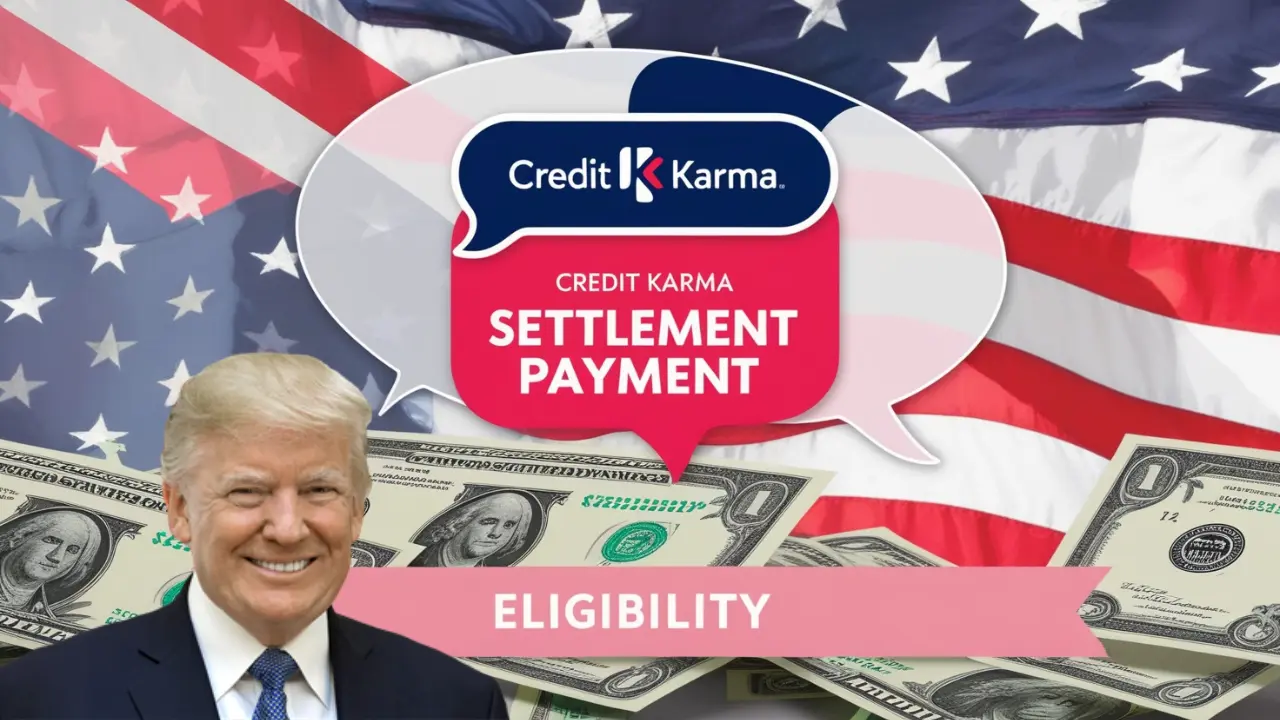Credit Karma Settlement Payout: In recent news, Credit Karma, the popular credit-monitoring platform, has settled a case with the Federal Trade Commission (FTC) for $2.5 million over misleading “pre-approved” credit card offers. If you received one of these offers between February 2018 and April 2021 but were later denied credit, you might be eligible for a $49 payout. Keep reading to learn how to check your eligibility, claim your payment, and protect yourself from similar issues in the future.
What is the Credit Karma Settlement Payout?
The FTC sued Credit Karma for promoting certain credit card offers as “pre-approved” when, in reality, many users who responded to these offers were likely to be denied. This led to confusion, frustration, and even unnecessary hits to users’ credit scores. The settlement aims to compensate those affected, with eligible users receiving $49.
Am I Eligible for the Credit Karma Settlement Payout?
To qualify for the $49 payment, you must meet the following criteria:
- You used Credit Karma between February 2018 and April 2021.
- You responded to a “pre-approved” credit card offer.
- You were denied credit after responding to that offer.
If you believe you meet these conditions but haven’t received any communication, don’t worry. You can contact the settlement administrator at 1-866-848-0871 to inquire.
How to Claim Your Payment
If you’re eligible for the settlement, the next step is claiming your payment. Here’s what you need to know:
- Look Out for Official Notices: The FTC or settlement administrator will reach out via mail or email with instructions on how to claim your payment.
- Choose Your Payment Method: You can choose between a check or PayPal.
- If you opt for a check, be sure to cash it within 90 days.
- If you choose PayPal, accept the payment within 30 days.
- Be Prompt: Once you get your payment, deposit or use it right away to avoid expiration.
Why Did Credit Karma Settle?
Credit Karma’s free tools, like credit scores and card recommendations, are used by millions. However, when the FTC found that about one-third of users who responded to these “pre-approved” offers were denied credit, it initiated an investigation. Rather than face prolonged litigation, Credit Karma agreed to a $2.5 million settlement to compensate affected users.
In addition to compensating consumers, Credit Karma has promised to be more transparent in its marketing going forward, ensuring that offers are more accurately presented.
Protecting Yourself from Misleading Offers
To avoid falling victim to similar offers in the future, here are a few tips:
- Read the Fine Print: Always look for specific details on any credit offer, especially those that claim to be “pre-approved.”
- Monitor Your Credit: Regularly check your credit reports to spot unauthorized or unnecessary inquiries.
- Understand the Impact: Every credit inquiry can slightly lower your score, so always consider whether applying for credit is worth it.
- Stick to Trusted Sources: Use well-established credit monitoring services and official government websites like the FTC for reliable advice.
Frequently Asked Questions
- How can I find out if I’m eligible?
- If you responded to a “pre-approved” offer from Credit Karma and were later denied, the FTC has likely sent you a notice. If you haven’t received one, you can contact the settlement administrator.
- How much will I get?
- Every eligible consumer will receive $49 from the settlement.
- When will I receive my payment?
- Once you’ve been notified, you can expect a check or PayPal payment. Be sure to cash or accept the payment within the specified deadlines.
- I haven’t received a notice, but I think I’m eligible. What do I do?
- Contact the refund administrator at 1-866-848-0871 if you haven’t received any communication but believe you qualify.
Conclusion
The Credit Karma settlement serves as a reminder of how misleading “pre-approved” offers can impact consumers. Not only does this case help those affected by the offers, but it also underscores the importance of transparency in financial services. Stay informed, be cautious with your credit applications, and always rely on trusted sources for financial advice.



